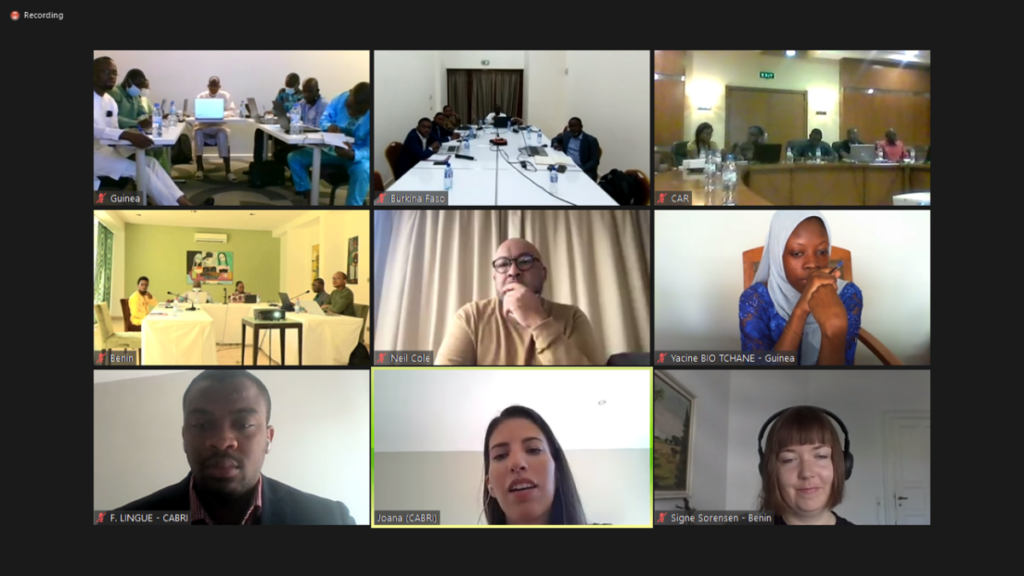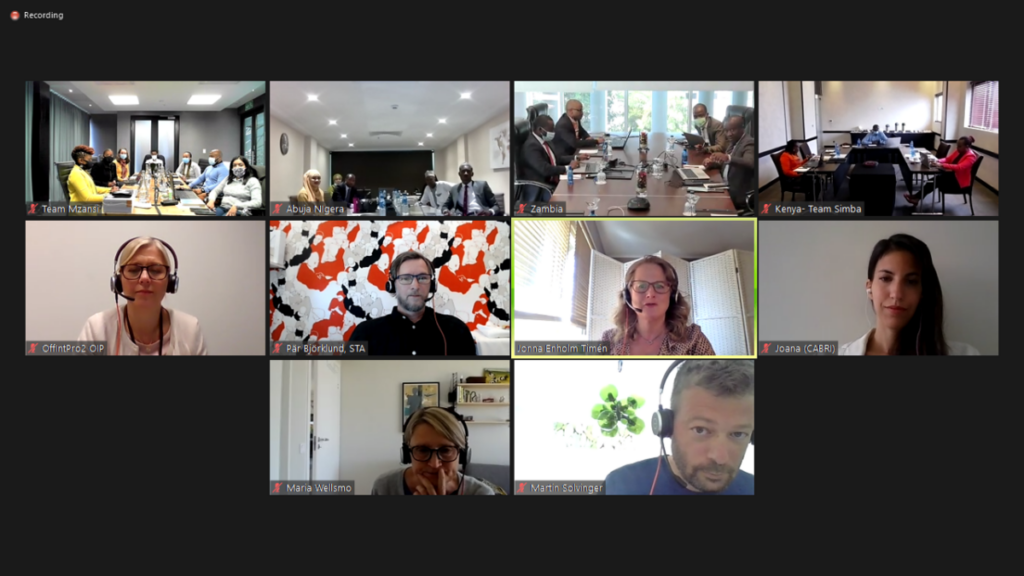
In April 2021, CABRI officially launched the 5th edition of the Building Public Finance Capabilities Programme, starting with a 5-week online course and followed by a Framing workshop in May. To date, this flagship programme has seen the collaboration of more than 35 country-teams across the continent, to make progress in solving complex public finance problems that have been locally identified.
This year, seven country teams are participating in the programme, namely Benin, Burkina Faso, Central African Republic (CAR), Guinea, Lesotho, Malawi and Seychelles – having identified problems in three key areas:
- The first is on cash and liquidity management – a critical function to enable governments to meet their extended obligations and deal with the heightened volatility in revenue and expenditure that ensued as a result of the COVID pandemic. This is made even more difficult when coupled with the more structural challenges identified by participating countries, such as uncertainties in aggregate cash positions in Malawi, weaknesses in cash flow forecasts in Seychelles and limited information and control over cash balances in Burkina Faso and CAR.
- The second area is in public finance in health, a sector which is currently presented with one of the biggest challenges of the 21st century. Within increasingly constrained fiscal spaces, a key question in the face of the health community is: how to do more with less whilst ensuring effective service delivery? This will certainly be at the heart of the work in Guinea, who wants to tackle the key drivers of increased out-of-pocket spending by households, despite increases in the State budget allocated to health. On the other hand, Benin will be looking at the efficiency of spending, particular for co-financed projects, in the health sector.
- The third area is on the implementation of capital projects, which will play a crucial role in driving sub-Saharan Africa’s economic recovery. However, weak integration of capital spending in the budget and systemically low execution rates are common and often lead to delays in the completion or entirely abandoned projects, as identified by the team from Lesotho. Over the upcoming months, the teams will adopt an iterative and adaptive approach, engaging relevant stakeholders and authorisers to better understand the root causes of the problems and facilitate the emergence of solutions that achieve consensus and are locally relevant.
Over the upcoming months, the teams will adopt an iterative and adaptive approach, engaging relevant stakeholders and authorisers to better understand the root causes of the problems and facilitate the emergence of solutions that achieve consensus and are locally relevant.

At the same time, the International Capability Building Programme on Voluntary Tax Compliance – a collaboration between CABRI and the Swedish Tax Agency - is moving ahead. In early June, the four country-teams participating in the first edition of the programme attended a Benchmarking Workshop to present on the progress they have made and share new learnings about key issues preventing effective tax mobilisation. During bilateral sessions, the teams also identified common issues they will be taking forward in further peer learning exchanges, such as approaches to taxpayer engagement, dealing with dormant taxpayers or obtaining high level support to operationalise tax reforms.